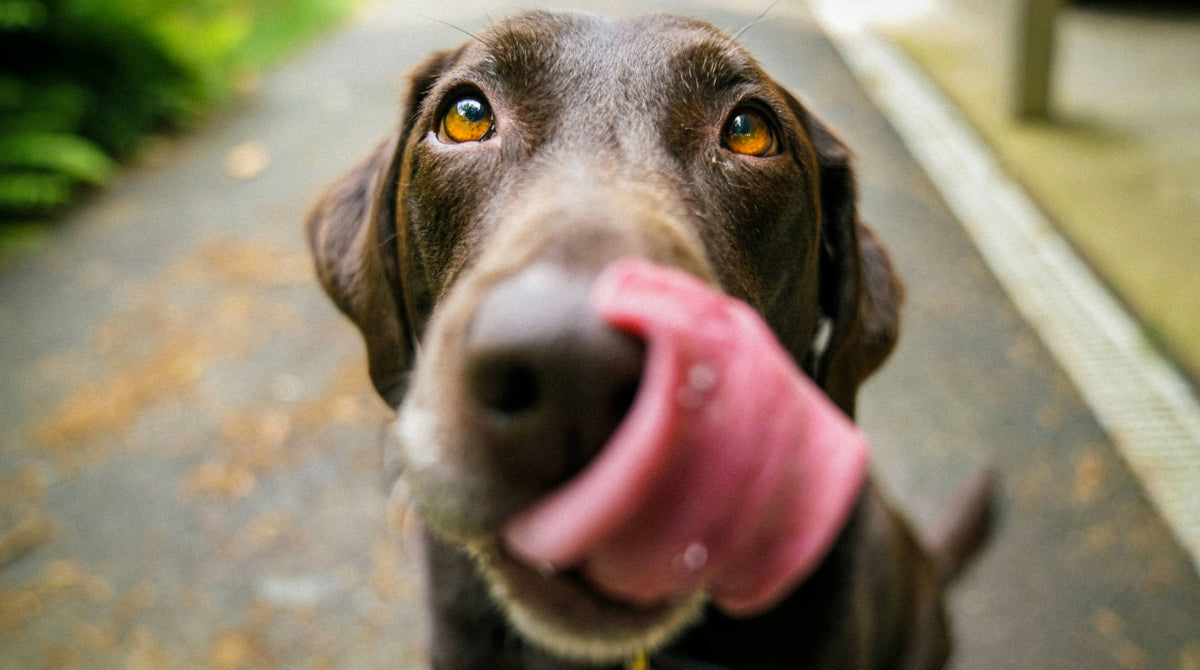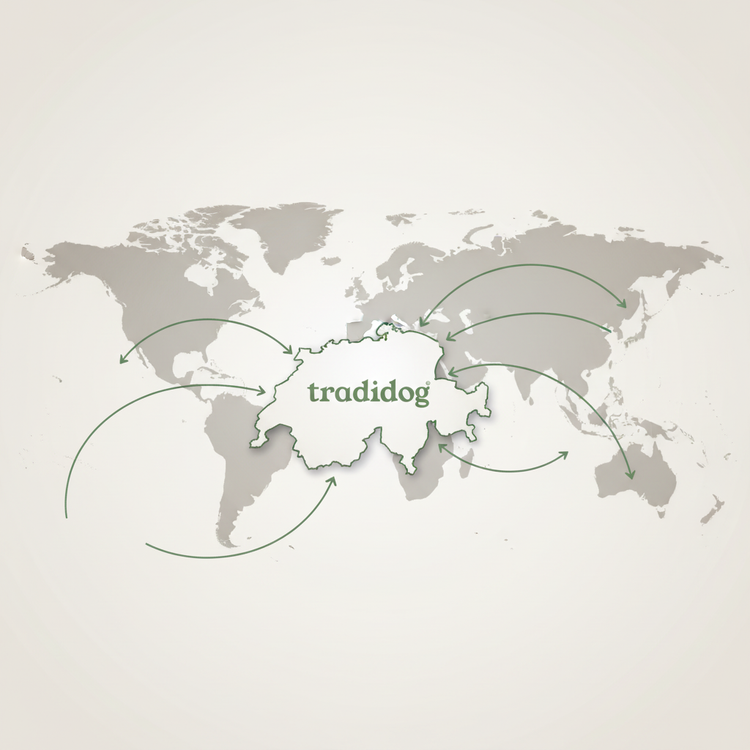
Can dogs eat pasta?
Who hasn't experienced this from their time living in a shared apartment? Time is short, the budget is small, and the fridge is empty. So, off you go to the nearby supermarket. The shopping basket is quickly filled. Once again, it's pasta with pesto. And because the quote "Eating is a necessity, eating together is a pleasure – even with our dogs" perfectly expresses it, you wonder if dogs can also join in the pasta festivities. The thought of letting your four-legged friend share in your enjoyment is tempting. But how healthy is pasta for dogs, really? In this blog post, we'll explain and give you practical tips on dog nutrition.
Pasta and dogs: A basic knowledge
Pasta is one of the most popular foods worldwide and consists primarily of wheat flour, water, and sometimes eggs. But what does this mean for your dog?
- Carbohydrates as an energy source : Pasta contains mainly carbohydrates, which can provide your dog with short-term energy.
- Lack of essential nutrients : Compared to meat or special dog foods, pasta is low in nutrients and does not provide the vitamins or minerals your dog needs.
- Excess calories : Too much pasta can lead to obesity, especially in less active dogs.
The good news: Dogs can eat cooked pasta occasionally and in small quantities, as long as it is unseasoned and natural.
Suitable types of pasta for dogs
Not every type of pasta is equally suitable for your dog. Here's an overview of the best options:
Suitable:
- Wheat noodles : Classic noodles made from wheat flour are easy to digest and unproblematic in small quantities.
- Whole wheat pasta : Contains more fiber, which can aid digestion, but be careful: some dogs react to it with flatulence.
- Gluten-free pasta : Rice or corn pasta are ideal for dogs with gluten intolerance.
- Egg noodles : The egg content provides additional protein, but should still only be fed rarely.
Not suitable:
- Instant noodles : They often contain additives that are harmful to dogs.
- Pasta with fillings (e.g. ravioli): The fillings may contain spices, onions or garlic, which are toxic to dogs.
Preparation tips: How to make pasta suitable for dogs
To ensure your dog can enjoy pasta safely, there are some important rules:
- No spices or salt: Avoid salt, garlic, onions, or other spices. They are difficult for dogs to digest or even toxic.
- Cooked well: The pasta should be soft so that your dog's stomach can process it more easily.
- No sauces: Creamy or tomato-based sauces often contain sugar, salt or spices that are unsuitable for dogs.
A simple recipe:
- Cook 2-3 tablespoons of plain noodles (e.g. rice noodles) without salt or spices.
- Add some cooked chicken or turkey and steamed vegetables (like carrots or zucchini).
- Let the meal cool before serving it to your dog.
Risks and what you should pay attention to
Although noodles themselves are not poisonous, there are a few things you should keep in mind:
- Avoid calorie bombs : Pasta contains a lot of calories but few important nutrients. Too much can lead to obesity.
- Recognizing allergies : Some dogs react to gluten or wheat with skin rashes or digestive problems. Monitor your dog closely after feeding.
- Raw pasta : Never feed raw pasta. It's difficult to digest and, in the worst case, can swell in the stomach or intestines.
If your dog shows vomiting, diarrhea, or other symptoms after eating pasta, contact your veterinarian.
Healthy alternatives to pasta
There are many foods that your dog might enjoy as much as pasta and are healthier at the same time:
- Rice : Particularly easy to digest and an ideal side dish if your dog has stomach problems.
- Potatoes : Cooked, unseasoned potatoes provide energy and vitamins.
- Vegetables : Carrots, zucchini, sweet potatoes or pumpkin are healthy and delicious options.
- Quinoa : A protein-rich alternative that also contains many vitamins and minerals.
Other snacks for in between:
- Cooked chicken strips
- Unsalted rice crackers
- Apple pieces (without cores)
Conclusion
Yes, your dog can occasionally eat cooked, unseasoned pasta. However, it should never be their primary source of food, as it doesn't provide all the necessary nutrients. Consider serving pasta as a small treat or as a side dish to a balanced meal. If you're unsure whether your dog can tolerate a particular food, consult your veterinarian.
Share

